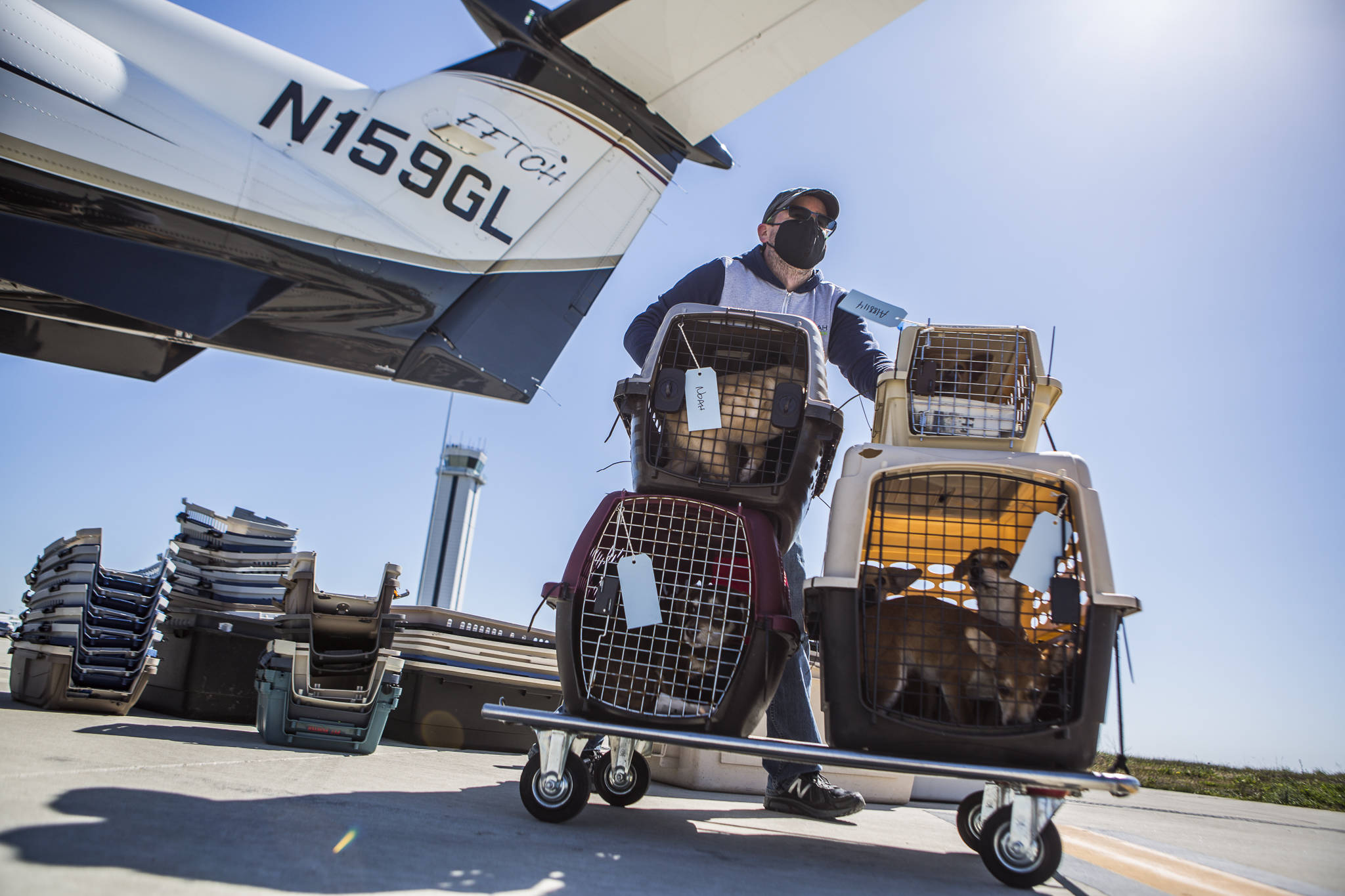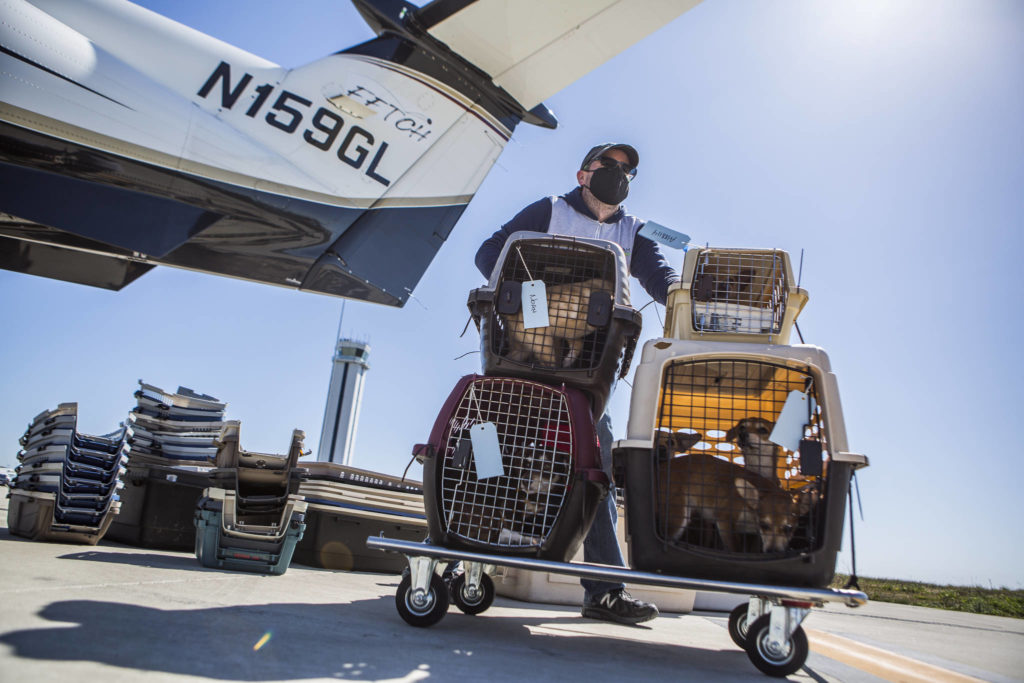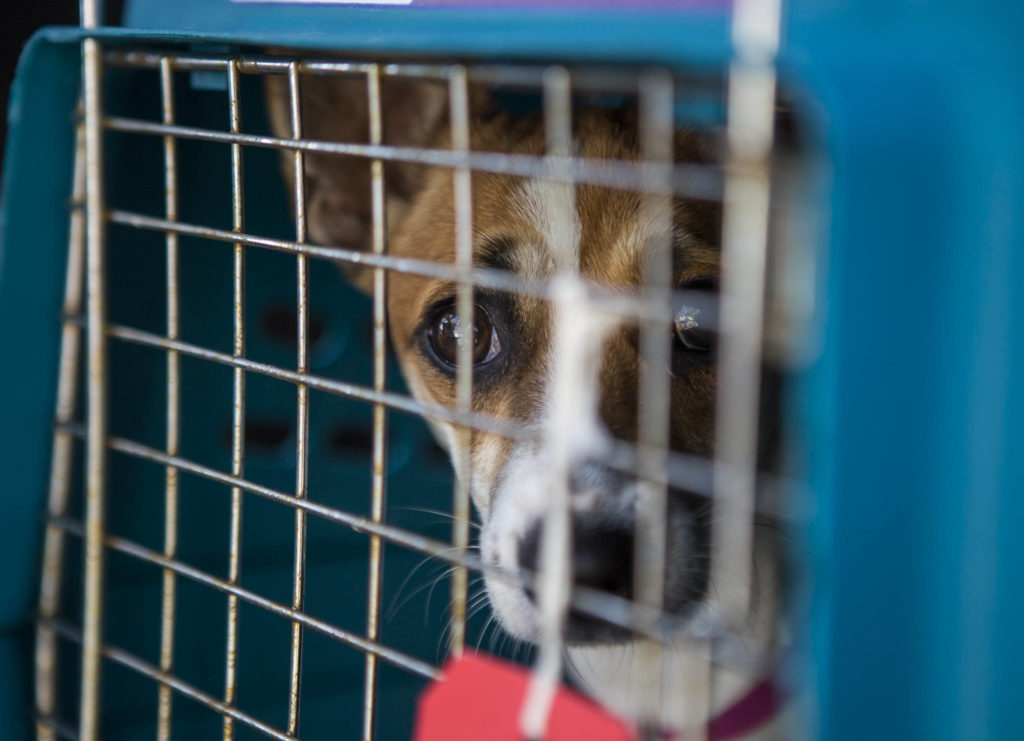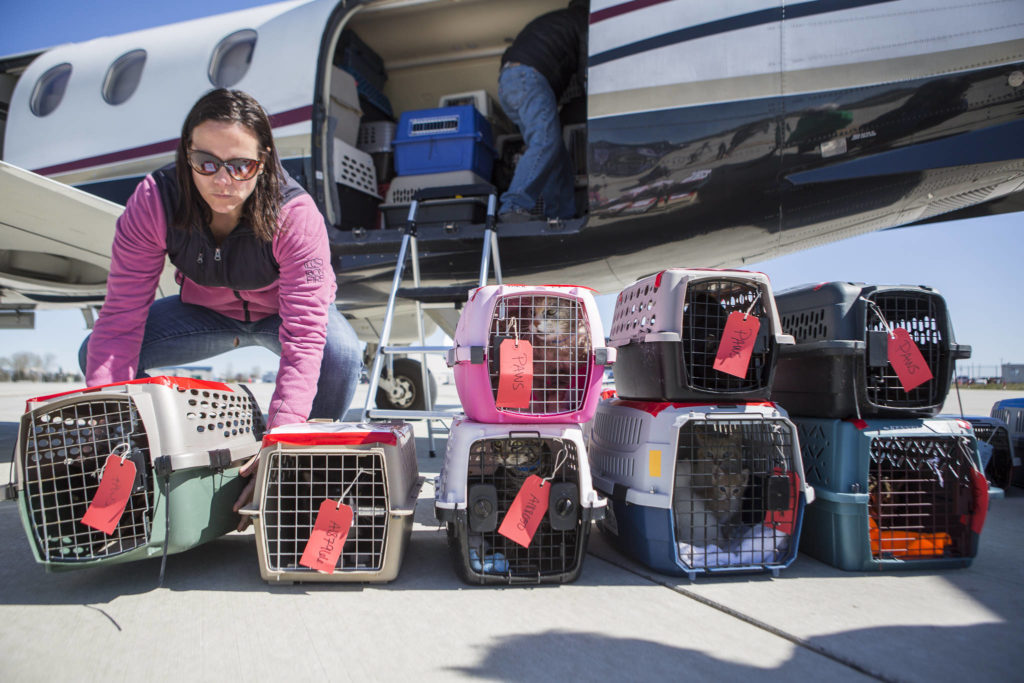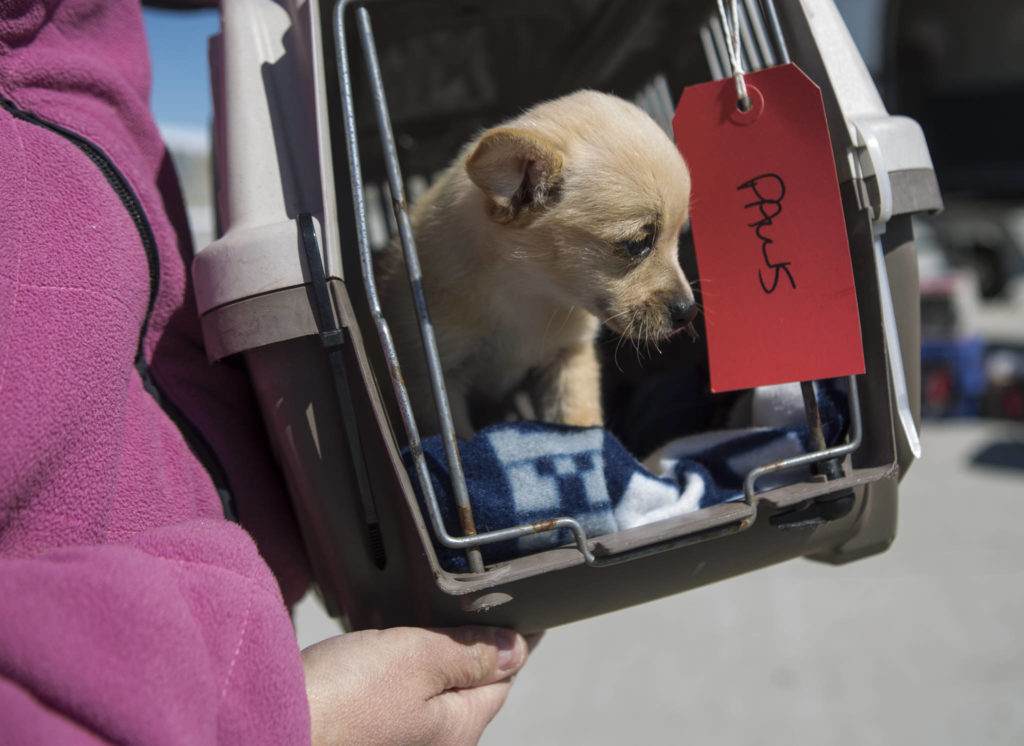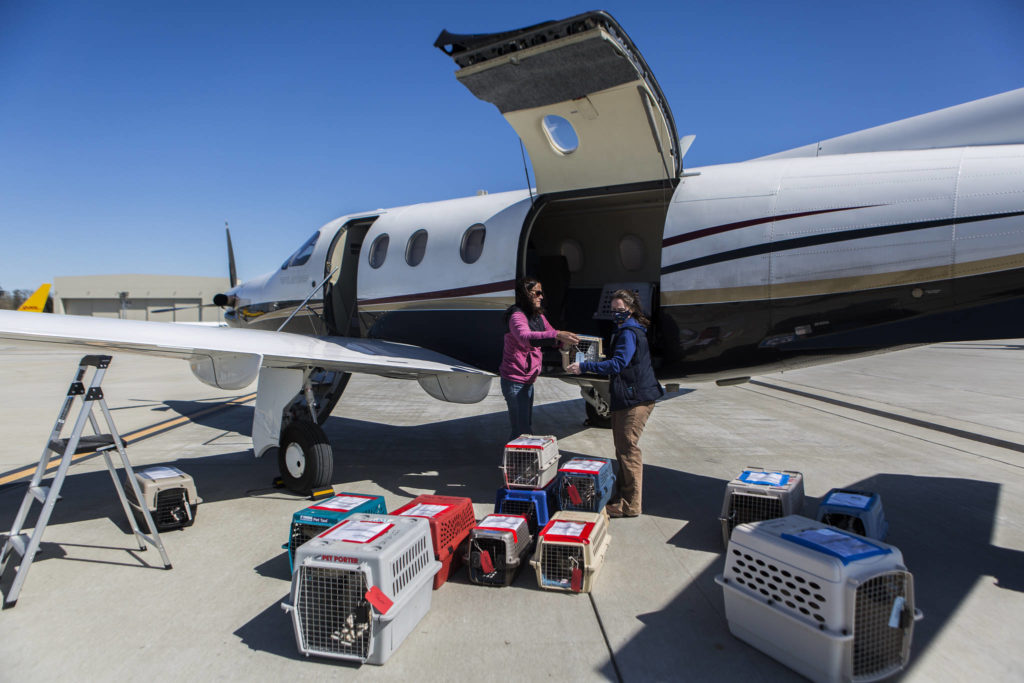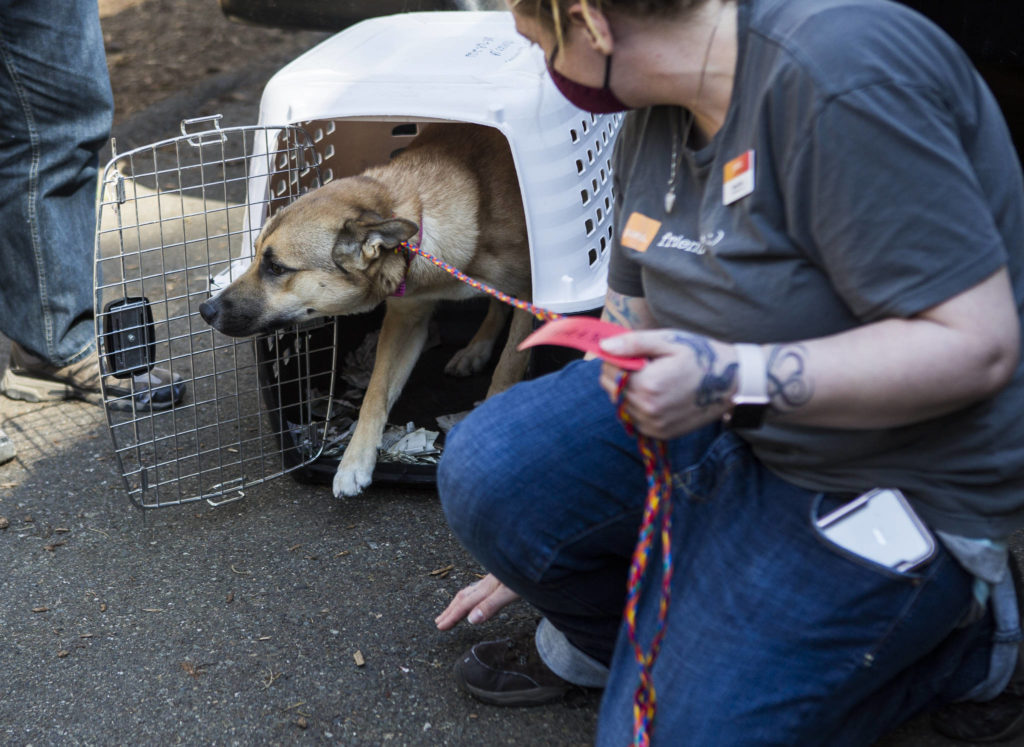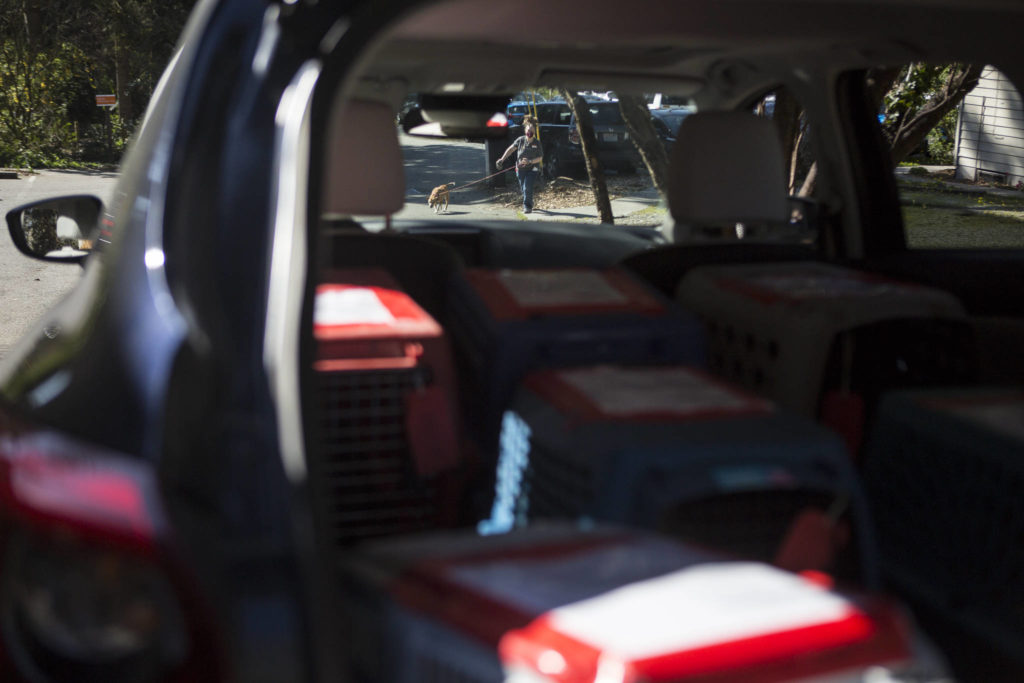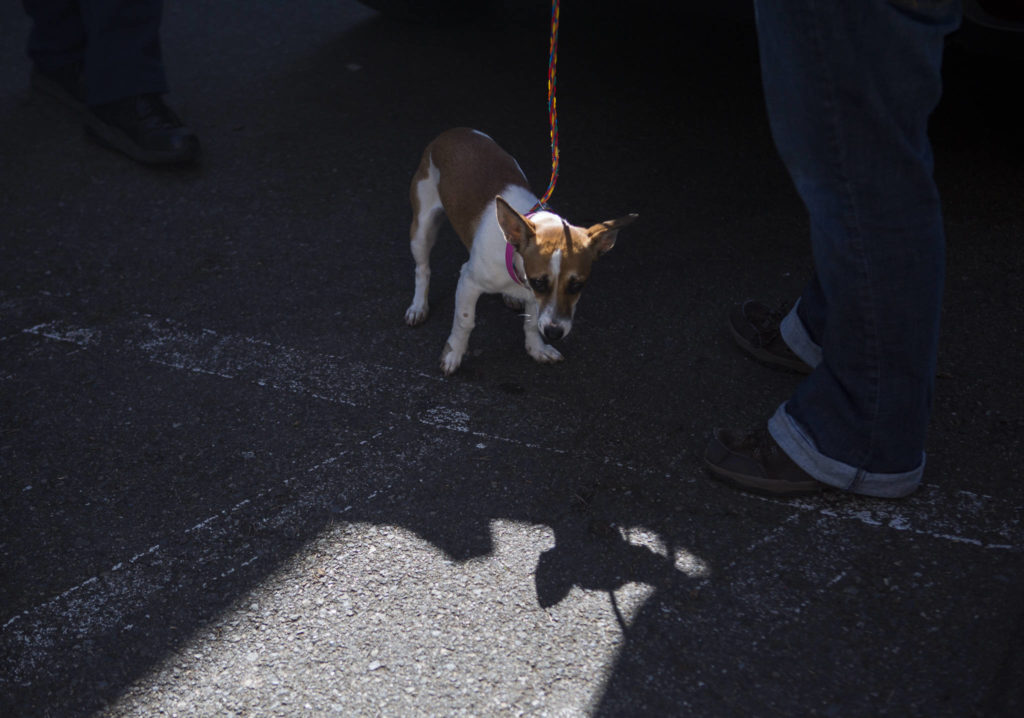EVERETT — Ping! Your order for 90 dogs and cats has been delivered.
It was a noisy crowd that disem-barked Tuesday afternoon at Paine Field after a three-hour flight from Merced County in California.
Some eight-dozen crated animals were met and unloaded by a half-dozen workers from the Progressive Animal Welfare Society (PAWS) in Lynnwood and The NOAH Center in Stanwood.
Red-tagged crates went to PAWS. Blue-tagged crates were earmarked for NOAH. It took about 30 minutes to unload the single-engine Pilatus PC-12 airplane.
In all, PAWS received 23 cats and 15 dogs. NOAH took in 29 dogs, five kittens and four new mom cats with three to six kittens each.
(If that doesn’t quite add up to 90, well, you know how puppies and kittens can multiply.)
Wings of Rescue, a nonprofit that airlifts companion animals, chartered the small airplane, whose interior was stripped to accommodate the pets.
“We only use pressurized, climate-controlled planes,” said Gene Gable, a Wings spokesman.
After the no-frills flight, the animals were to be un-crated, allowed to stretch and “get lots of snacks,” PAWS spokeswoman Laura Follis said.
At NOAH, they’ll be shown their quarters and allowed to decompress, said Randy White, the shelter’s transfer coordinator. “We’ll feed them and let them relax,” White said.
Friday is another big day for the NOAH group — they’ll be spayed and neutered, White said.
Some animals may be available for adoption this weekend, White said.
The two shelters regularly receive animals from Wings of Rescue, but “this transfer is unusually big,” said Sara Bradshaw, NOAH’s operations director.
Demand for companion animals has risen during the COVID-19 pandemic.
The work-from-home set, in particular, is poised to take a new puppy or dog outside at any hour.
“As soon as we put animals up for adoption, we’re getting applications,” Follis said.
PAWS is bringing in animals from outside the state due to a local shortage of adoptable pets.
“The Northwest has excellent spay-and-neuter programs and fewer ‘surrenders’ than other areas,” resulting in fewer animals to draw from, Follis said.
NOAH, a “second-chance shelter” that depends on other animal shelters to fill adoption rolls, hasn’t gotten as many animals from “transfer partners” due to COVID restrictions, Bradshaw said.
Tuesday’s air shipment is “a lot,” Bradshaw said. “We’re very excited.”
Last year, Wings of Rescue flew 1,913 dogs and 430 cats to shelters across the United States and, in eight years of operation, more than 53,000 animals.
Ground transportation can often take 24 hours or more, Gable said. “Most of our flights are completed within three to four hours,” Gable said.
When the air rescue group first launched in 2012, volunteered aircraft carried the animals, but logistics and insurance concerns led to chartered planes, Gable said. The pilots, though, are still volunteers.
But you have to wonder: What’s it like to pilot a hundred dogs and cats?
As you would expect: Loud and louder during take-offs and landings, said Kale Garcia, a Bend, Oregon-based volunteer pilot who flew the airplane.
“After that, for the most part, they go to sleep,” Garcia said.
For more information about PAWS, go to paws.org.
For The NOAH Center, go to thenoahcenter.org.
Janice Podsada; jpodsada@heraldnet.com; 425-339-3097; Twitter: JanicePods
Talk to us
> Give us your news tips.
> Send us a letter to the editor.
> More Herald contact information.
